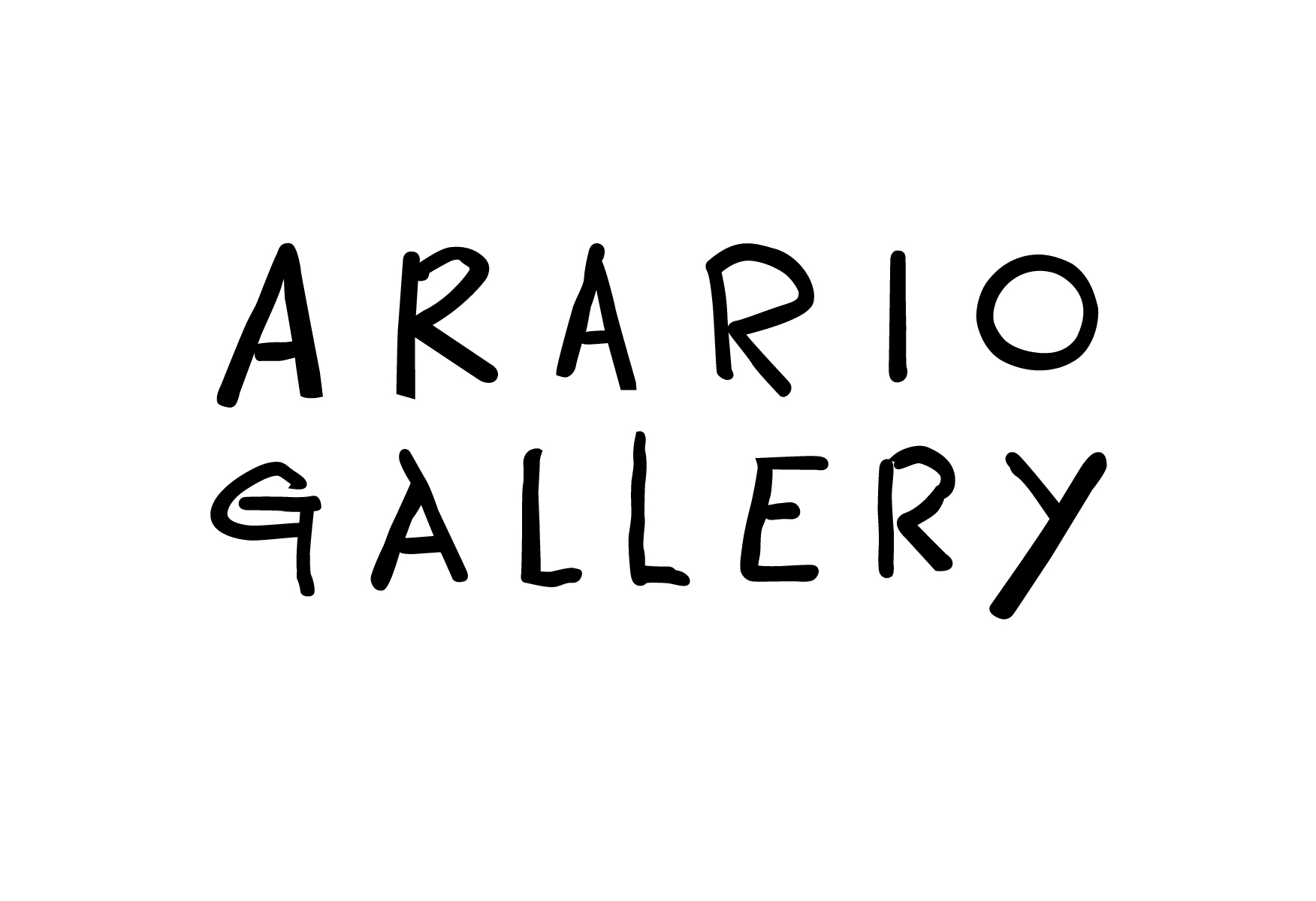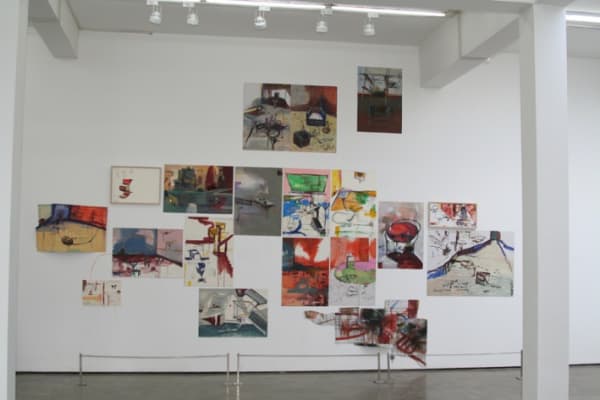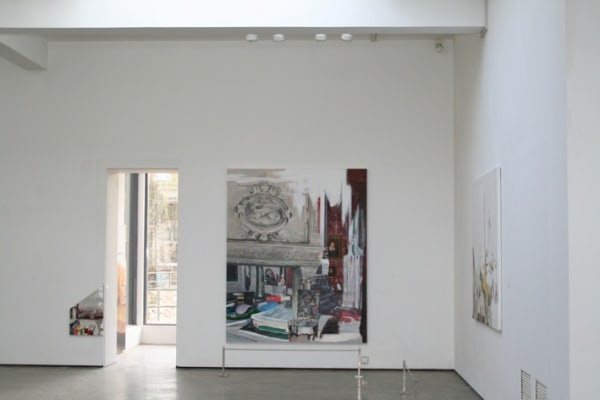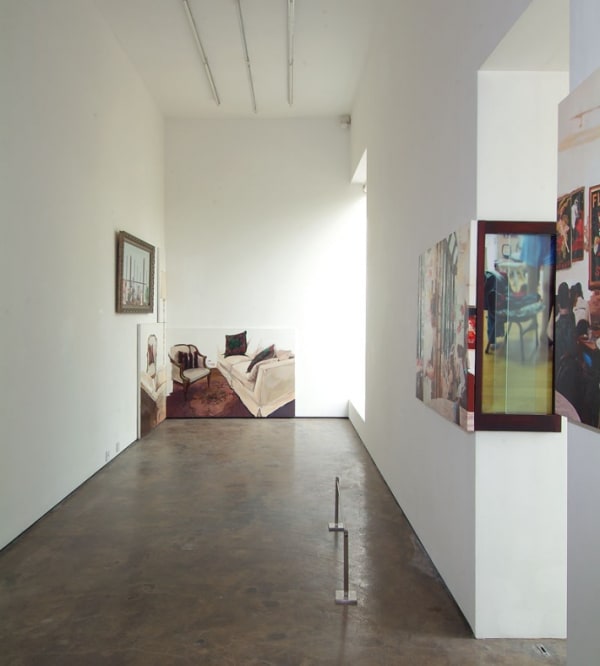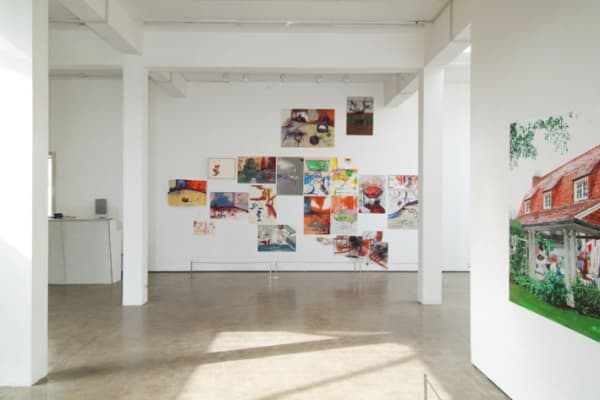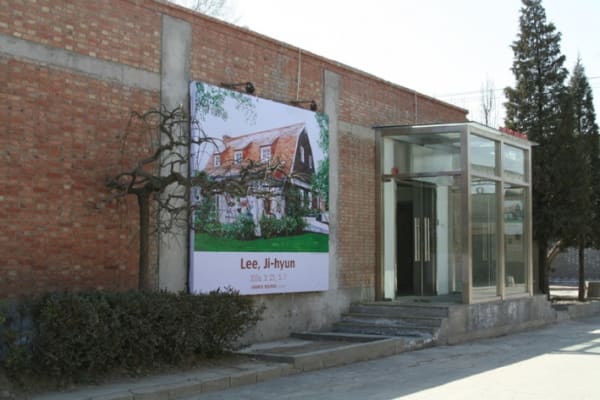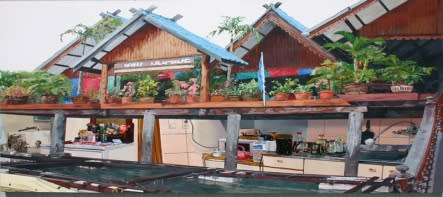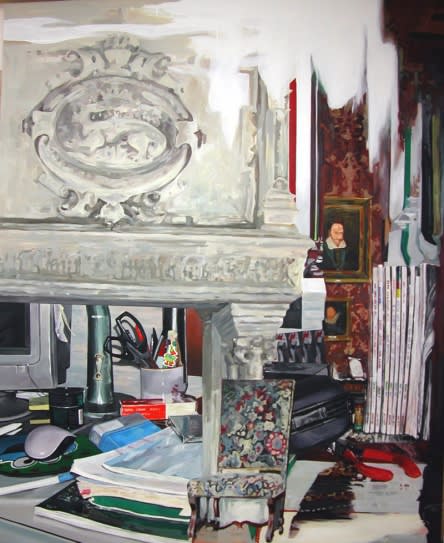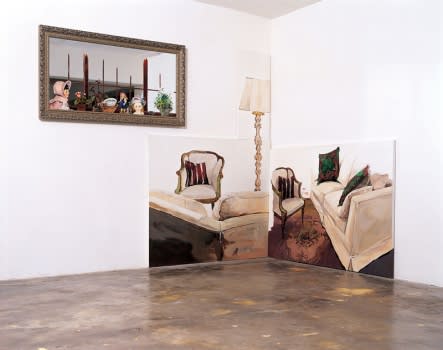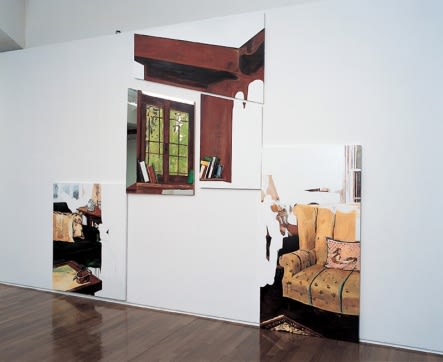LEE Jihyun
This exhibition which will be held at the Gallery 3 of Arario Beijing is the first international solo exhibition of young and talented artist, Lee Ji-hyun who just participated in a big group exhibition in Busan Museum of Modern Art.
Starting with this exhibition, I hope that Arario Beijing would be the bridgehead for the entry of Asian young artists into the worldwide stage.
Lee Ji-hyun depends a lot on the forms of traditional paintings; however she is an artist who likes to challenge the formal experimentations towards the painting and the breaking of conceptual framings. She says, “I liked multi-functional things when I was young.” On her canvas, the uncoexistable two spaces embrace each other or parallelized to each other, and totally different multi-layered spaces get tangled without the starting or ending point. Sometimes, the real object like mirror suddenly appears in the illusionary space of canvas and pulls in the spectators and surrounding landscape. Moreover, doing experiments outside the square canvas cutting the frame and rearrange it, Lee Ji-hyun crosses the border of painting and real spaces where it is hung. Reconstructing the real space through the objet of painting canvas, she tries strange interventions in the natural recognition system of spectators to the specific space.
In contents, also, Lee Ji-hyun’s painting crosses the borders of past/present, public space/private space, history/personal story. Her paintings always start from the intervention of the private spaces (her atelier, cupboard in the kitchen, drawers, etc.) into the landscapes of the places she visited (historic sites, museum, café, etc.), and this intervention creates harmony rather than crash. Historical structure and personal spaces which seem to be hard to match coexist without any problems of taking places, and people appearing from time to time are peacefully laid in their own places in an anti-heroic manner rather than coveting the role of heroes. All of these components of works flexibly get tangled, float around, and make harmonious arrangements in the canvas.
This harmonious but strange world feels like a collage diary of a postmodern nomad who forgets the difference between the journey and everyday life. Following backwards the personal expedition of the artist as going through a labyrinth, we are sometimes feel the tension to peep into the private life, but soon, this tension changes into the feeling of intimacy because of the familiar places and everyday common objects. These mixed feelings coexist in her painting.
In the unlimitedly expanded possibilities of contemporary art, it would be very difficult for a young artist to manage the ‘painting’, a genre of historic weight which has already experienced the death and revival. However, Lee Ji-hyun has a virtue of taking this burden as if it were a gift and wittily reconstructing the contradictory problems of painting in her own language. Even if it never is an easy work to pull out the new from the old, she ingeniously creates the coexistence of the public and the private, of the familiar and the strange, and happily meditates on what the contemporary painting should be like.
